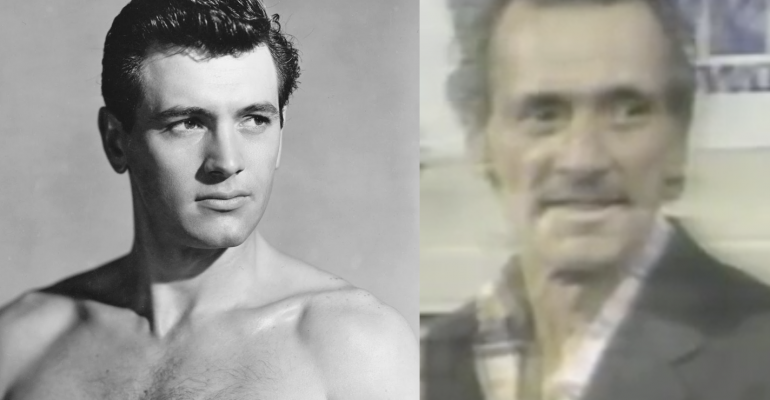Before Rock Hudson, 59, was outed as suffering from AIDS in July of 1985, other well-known figures had contracted HIV and even died of the resulting syndrome, but no household names of Hudson's caliber — and certainly no icons of masculinity and wholesomeness.
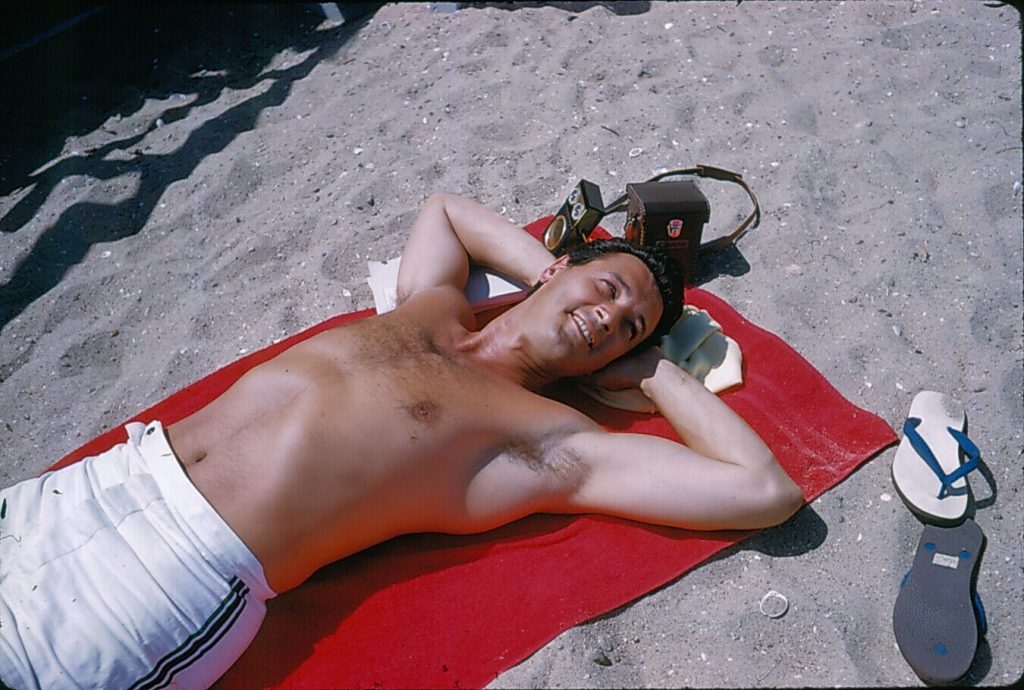
By July of 1985, Hudson — who would have turned 95 this week — had a secret of more than a year: He had AIDS and was on the brink of death.

AIDS was not a secret someone as famous as Hudson, the matinee idol and latter-day TV star could easily keep so early in the outbreak of the pandemic; the telltale weight loss and Kaposi's sarcoma lesions would announce it soon enough.
Ironically, he had discovered he had AIDS only because of a dinner he attended with his old friends President Ronald Reagan (1911-2004) and his wife, Nancy (1921-2016). Eating with them at the White House on May 15, 1984, he posed for a photo that, when it came back, revealed a spot on his neck.
Urged by his inner circle to see a dermatologist, he had a biopsy done and by the end of that month knew he had AIDS.
From that point on, Hudson — already closeted about his sexual orientation, the product of an era where a leading man would never dream of being openly gay — kept information about his deteriorating health closely guarded, failing to tell even his lover, Marc Christian (1953-2009).
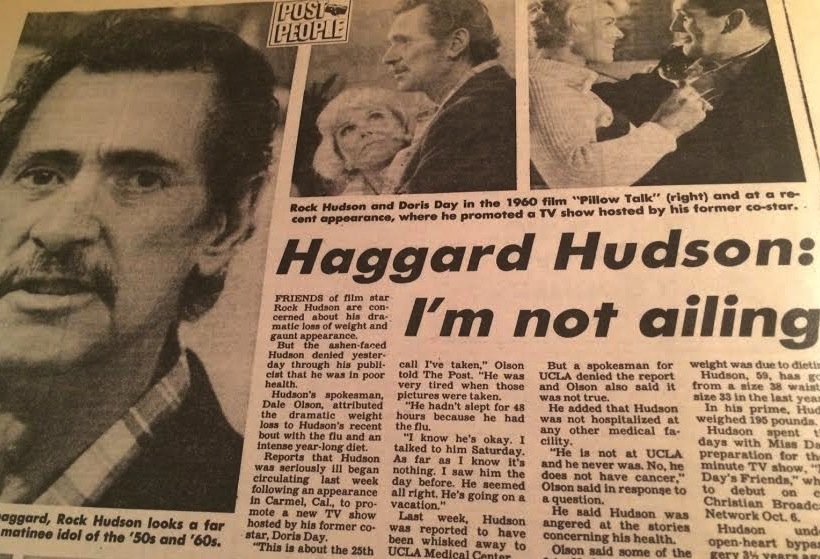
In denial, Hudson continued working, even as his appearance began to suggest he was ill. He shot a nine-episode arc on the immensely popular nighttime soap Dynasty, starring as Daniel Reece, a temptation for very married Krystal Carrington, played by Linda Evans (b. 1942). His episodes aired between December 19, 1984, and April 3, 1985. On the February 6, 1985, episode “The Ball,” Hudson and Evans kiss passionately, an image that would later ignite debate about whether he had endangered her life.
Behind the scenes, Hudson had reportedly “agonized” over the kiss, opting to go through with it after using mouthwash and other precautions, and then keeping his mouth closed.
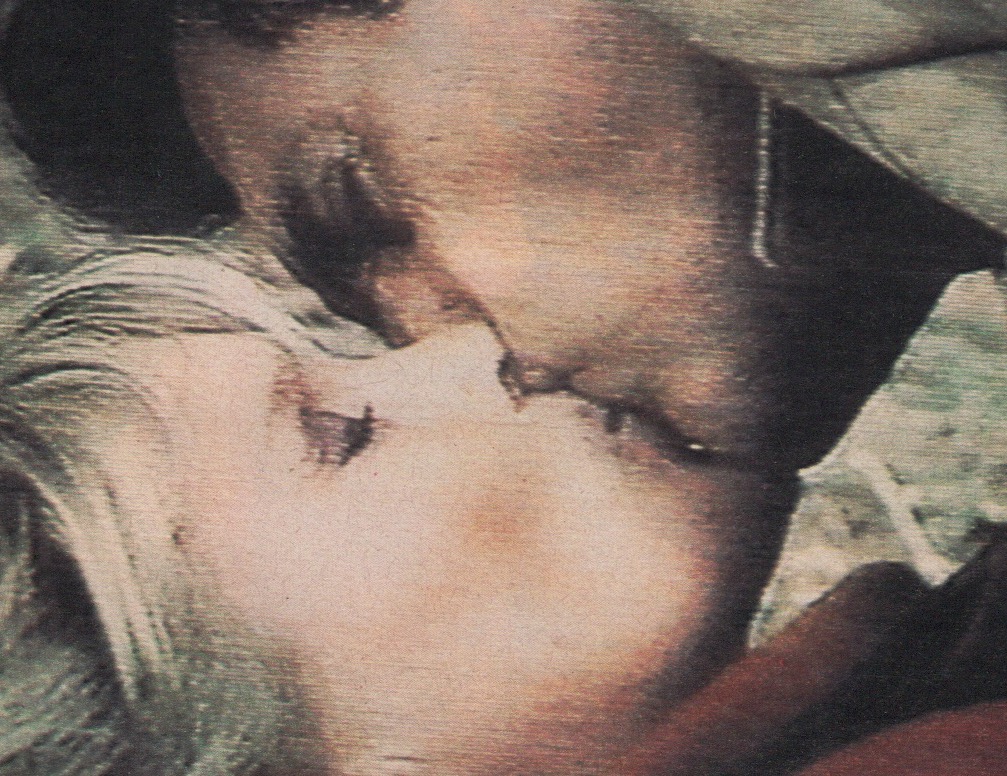
Evans was later 100% supportive of Hudson, saying: I have not been concerned about my health at any point. And I haven't had a blood test for the disease. Quite simply, people should not be worried about me because I am not worried about myself. I feel very sad that while Rock is struggling for his life this sort of thing is going on. My only concern has been for Rock. He is such a lovely, kind man.”
Nonetheless, “the kiss” made tabloid headlines once Hudson's status was revealed, which happened when he collapsed at the Ritz Hotel on July 21, 1985, while in Paris seeking experimental treatments for his condition.
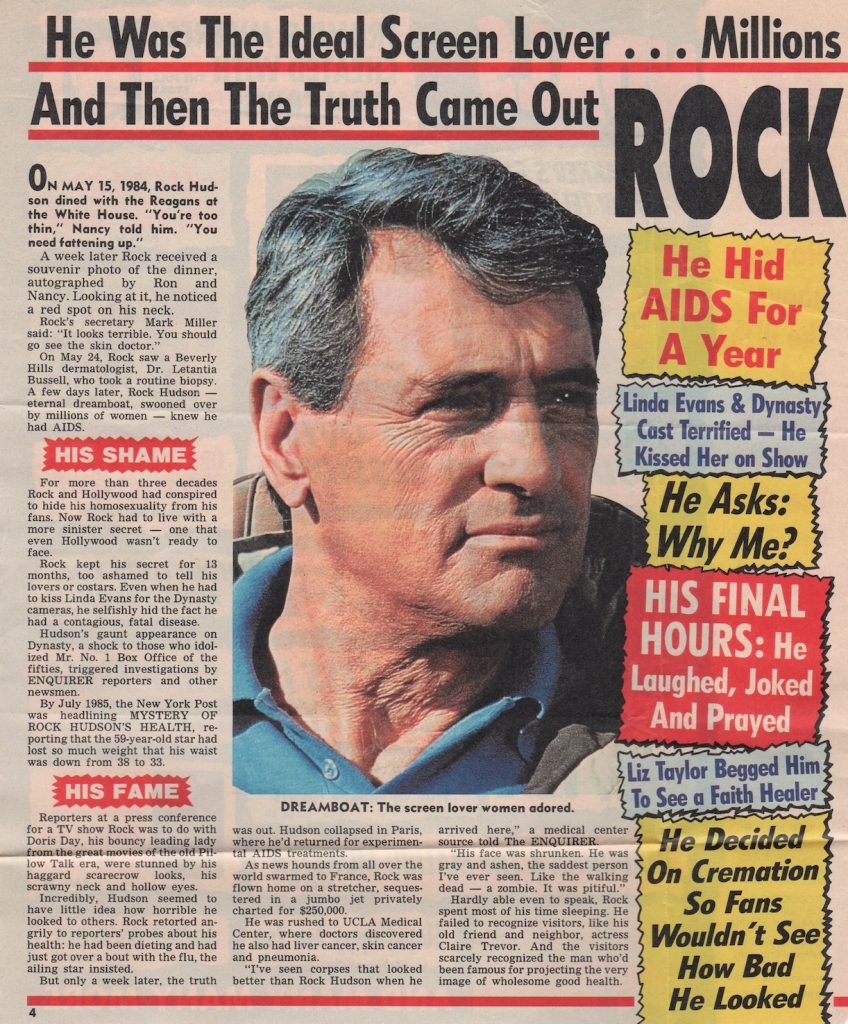
He had already tempted fate by appearing on the premier episode of his buddy Doris Day's (1922-2019) Christian Broadcasting Network series Doris Day's Best Friends (with a press event that sped up reports of his sickly appearance) looking so deathly gaunt that the hostess was visibly shaken.
Following all the speculation, he announced in a press release on July 25, 1985, that he did, indeed, have AIDS.
By the end of that month, exposed as the world's most famous — and richest — AIDS patients, Hudson was nonetheless running out of options. The Reagans blew him off when he requested help, and no domestic airline would fly him home from France. Instead, he was forced to pay $250,000 to charter a private 747 home, dogged by intrusive media every step of the way.
When he did make it back to L.A., he was rushed via helicopter to UCLA Medical Center, and was promptly diagnosed with liver and skin cancer, as well as pneumonia. The once virile, handsome sex symbol was — at just 59 years old — reduced to a skeletal remnant of who he'd once been.
Rock Hudson never formally came out as gay while alive. Instead, he felt coming out as having AIDS was enough. In September 1985, Hudson allowed a message to be read at a fundraiser hosted by his close friend Elizabeth Taylor (1932-2011), a pioneering AIDS activist, at a fundraiser for the disease. In it, he stated, “I am not happy that I am sick. I am not happy that I have AIDS; but if that is helping others, I can at least know that my own misfortune has had some positive worth.”
Hudson died at home on October 2, 1985. His death transformed the way the disease was viewed, and led to more public discussion of its effects, its pathology and how to help its victims.
It may be no accident that President Reagan — who had long avoided even mentioning AIDS, finding it to be distasteful — finally said “AIDS” out loud on September 17, 1985, less than two months after his old friend became its most public face

